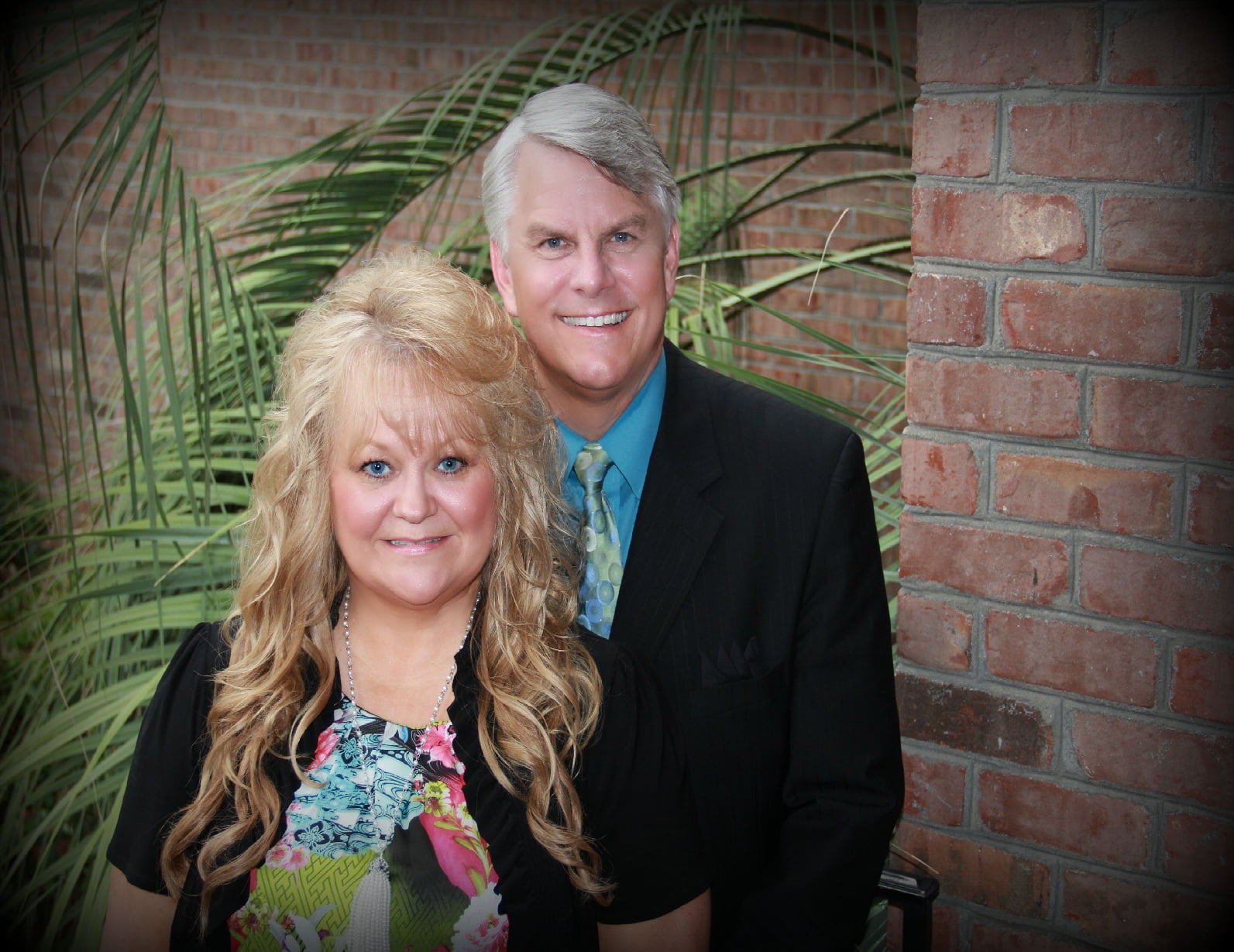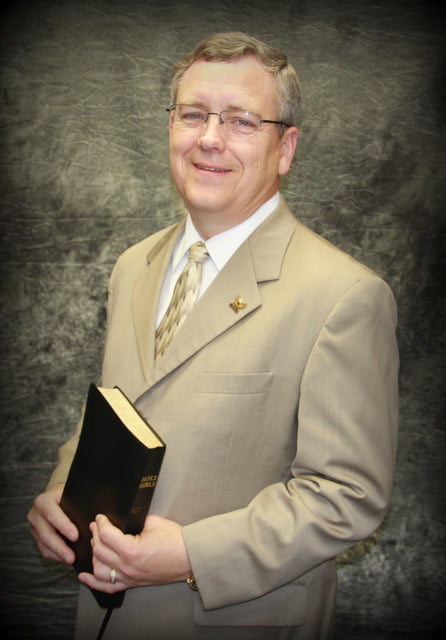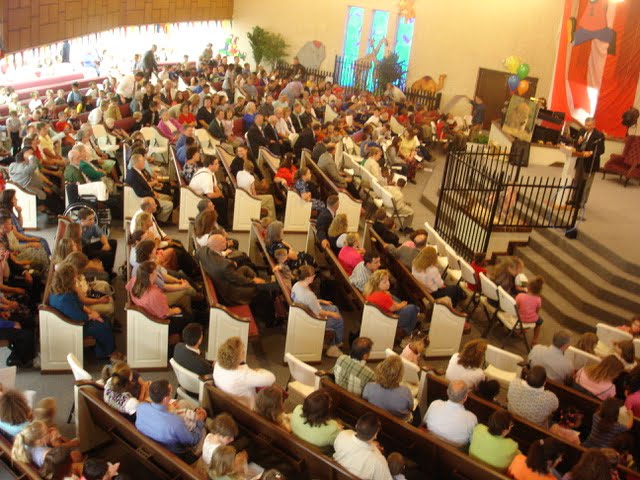Section 1 - The Holy Scriptures
We believe that the Bible (the King James Bible of 1611) consisting of Old and New Testament Scriptures is the verbally and plenarily inspired Word of God in the English language. We further believe it is God’s Revelation to man, inerrant and that it is, therefore, the supreme and final authority in all matters of doctrine, faith and life. (II Timothy 3:16-17)
Section 2 - The Trinity of The God-Head
We believe in one God, eternally existing in three persons: Father, Son and Holy Spirit.
(Matthew 28:19, Ephesians 1)
Section 3 - The Pre-Existence, Deity, and Incarnation of Jesus Christ
We believe that Jesus Christ ever existed with the Father and Holy Spirit, and that in His incarnation was begotten by the Holy Spirit, born of the virgin Mary and is the true God and true man.
(John 1:1-19, I Timothy 3:16)
Section 4 - The Creation and Fall of Man
We believe that man was created in the image of God; that he sinned and thereby incurred not only physical death but also spiritual death which is separation from God. All human beings are born with a sinful nature and are condemned in God’s eyes, and for those who reach moral responsibility become sinners in thought, word, and deed, and that they must be born-again to be accepted by God. (Romans 5:12; 3:10, 23; John 3:1-21)
Section 5 - The Death, Resurrection and The Ascension of Jesus Christ
We believe that Christ died for our sins according to the Scriptures as a representative and a substitutionary sacrifice, and that all who believe in Him are saved on the grounds of His shed blood. We believe that He arose bodily from the dead on the third day in the same body in which He suffered and died. We also believe that our Lord ascended into Heaven; that He is now seated at the right hand of the Father and is our High Priest and Divine Advocate with the Father. We believe that, by His finished work on the Cross and His unceasing ministry of intercession in Glory, that Jesus Christ has procured for every believer eternal redemption, eternal salvation, and everlasting life.
(I Corinthians 15:3-4; John 20:27; Mark 16:19; Hebrews 5:9; 7:25; 8:1; 9:12; I John 2:1; John 3:16)
Section 6 - The Personality and Ministry of The Holy Spirit
- We believe that the Holy Spirit is a person who convicts the world of sin, of righteousness, and of judgment; and, that He is the Supernatural Agent in regeneration, baptizing all believers into the body of Christ, indwelling and sealing them unto the day of redemption. (John 16:8-11; Rom. 8:9; 1 Cor. 12:12-14; 2 Cor. 3:6; Eph. 1:13-14)
- We believe that He is the divine Teacher who assists believers to understand and appropriate the Scriptures and that it is the privilege and duty of all the saved to be filled with the Spirit. (Eph. 1:17-18; 5:18; 1 John 2:20, 27)
- We believe that God is sovereign in the bestowal of spiritual gifts to every believer. God uniquely uses Evangelists, Pastors, and teachers to equip believers in the church to do the work of the ministry. (Rom. 12:3-8; 1 Cor. 12:4-11, 28; Eph. 4:7-12)
- We believe that the sign gifts of the Holy Spirit, such as speaking in tongues and the gift of healing, were temporary. Speaking in tongues was never the common or necessary sign of the baptism or filling of the Holy Spirit. The “tongues” to which we refer was a known language. God is able, if He chooses, to miraculously cross the barriers presented by language and provide understanding. Ultimate deliverance of the body from sickness or death awaits the consummation of our salvation in the resurrection, although God frequently chooses to answer the prayers of believers for physical healing. (1 Cor. 1:22; 13:8; 14:21-22)
Section 7 - Nature of Church
We believe that the church of Jesus Christ began during the earthly ministry of Jesus, and that it is composed solely of born-again people who have been called out from among the Jews and Gentiles. Christ, glorified in Heaven, is its Head and the Holy Spirit, on earth, is the active agent of the Godhead whoever seeks to bring about conformity within its ranks, and obedience to the Word of God and the will of God. The church unites believers to each other, and all to Christ, and its chief purpose of existence is to proclaim the Gospel to the world. (Acts 2; Romans 1:16; Acts 15:14; Ephesians 5:23-24; I Corinthians 12:12-13; Mark 16:15; Acts 1:8)
Section 8 - Ordinances
We believe that there are two ordinances given by Jesus to the local church that Christians are commanded to observe, namely, water Baptism and the Lord’s Supper. While recognizing that water Baptism has no saving merit, it is our conviction that after one is saved, Baptism is the next step in order to portray to the world the believer’s union with Christ in His death, burial and resurrection. It is our conviction that the scriptural method of water Baptism is immersion. We believe that Jesus Christ instituted the Lord’s Supper to commemorate His death until He comes. The Lord’s Supper is to be observed only by the saved who are living in obedience to Christ. We further believe that water Baptism by immersion is observed once, after salvation , and is a sign of identification, and a testimony to newness of life, but the Lord’s Supper is commemorative and is to be observed on a regular recurring basis directed by the Pastor as a memorial of the broken body and the shed blood of our Lord Jesus Christ. (Matthew 3:13-17; 28:19; I Corinthians 11:23-33; Acts 3:31-38)
Section 9 - Our Lord’s Second Advent
We believe in the blessed hope, the personal, pre-millennial, pre-tribulation, and imminent return of our Lord and Saviour Jesus Christ, which is known as the Rapture of the church. We also believe in the personal, visible and glorious return of Christ to the earth with His saints at the end of the Great Tribulation. This phase of His coming is known as the Revelation of Jesus Christ. When He returns to earth with His saints, we believe that Jesus Christ will establish His millennial kingdom and will reign for one thousand years. (Titus 2:13; I Thessalonians 4:13-17; John 14:3;
Revelation 19:11-21; 20:1-6)
Section 10 - Israel’s Place in God’s Program
We believe that “the gifts and calling of God are without repentance,” and, therefore, His covenant people, Israel, now blind and scattered, shall be re-gathered to the Land of Promise which is commonly known as Palestine; and under the personal and millennial reign of Christ upon David’s throne in Jerusalem, shall become the head of the nations and “the Gentiles shall come to thy light and kings to the brightness of thy rising.” (Romans 11:25-29; Psalm 72; Isaiah 60:3)
Section 11 - The Resurrection of the Dead
We believe in the bodily resurrection of the just at the Rapture (I Thessalonians 4:16;
I Corinthians 15:51-57) and of the unjust at the Great White Throne Judgement.
(Revelation 20:11-15; John 5:28-29)
Section 12 - The Eternal State of the Saved and the Lost
We believe in Heaven and Hell: Heaven, the place of eternal conscious joy for all who receive Jesus Christ as their personal Saviour; Hell, the place of eternal conscious punishment for all who reject Jesus Christ. Those who die in their sin, unsaved will go to hell until the final judgement at which time death and Hell are cast into the Lake of Fire which is the place of eternal conscious punishment. (John 14:1-6; Psalm 16:11; Philippians 1:21, 23; Psalm 9:16; John 8:24; II Thessalonians 1:7-9; Revelation 20:10-15)
Section 13 - The Personality of Satan
We believe that Satan is a personal being, a fallen angel, prince of demons, the god of this age, the great enticer and deceiver, the adversary of Christ and His people, the accuser of the brethren, whose end is the Lake of Fire. (Isaiah 14:12-15; Ezekiel 28:12-19; II Corinthians 4:3-4; Revelation 20:10)
Section 14 - Salvation
We believe that salvation is the gift of God brought to man by grace and received by personal faith in the Lord Jesus Christ, whose precious blood was shed on Calvary for the forgiveness of our sins. (Ephesians 2:8-10; John 1:12; Ephesians 1:7; I Peter 1:18-19)
Section 15 - The Assurance of Believers
We believe that it is the privilege of believers to rejoice in the assurance of their salvation through the testimony of God’s Word; which, however, clearly forbids the use of Christian liberty as an occasion to the flesh. (Romans 13:13-14; Galatians 5:13; Titus 2:11-15)
Section 16 - Eternal Security
We believe that salvation is an eternal state, that once truly secured cannot be lost.
(John 5:24; 10:27-29; Romans 11:29; Philippians 1:6; Ephesians 4:13-14; 4:30; I Peter 1:3-5)
Section 17 - The Two Natures of the Believer
We believe that every saved person possesses two natures with provision made for victory of the new nature over the old nature through the power of the indwelling Holy Spirit; and, that all claims to the eradication of the old nature in this life are unscriptural. (Romans 6:13; 8: 2-13; Galatians 5:16-25; Ephesians 4:22-24; Colossians 3:10; I Peter 1:14, 15; I John 3:5-9)
Section 18 - Separation and Sanctification
We believe that the Scripture clearly teaches non-conformity to the world for every believer; that born-again people should be separated from the world and unto Christ; that it is clearly commanded by God to all believers to live lives of separation from all worldly and sinful practices and to be holy as He is holy. We believe that positional sanctification occurs at the moment of regeneration and that practical sanctification is to be progressive throughout the entire life span of a believer here on earth. God’s provision for holy living is in the believer’s identification with Christ in His death,
burial, resurrection and ascension; the indwelling person and power of the Holy Spirit and the believer’s yieldedness to Him; and by the powerful Word of God. (Colossians 3:1-4; II Corinthians 6:14-17; Titus 2:14; I Peter 1:14-16; Colossians 1:13; Hebrews 10:1, 10:14; II Corinthians 7:1; 3:18; II Peter 3:18; Romans 6:1-14; Ephesians 1:15-2:6; John 17:17; Hebrews 4:12; Ephesians 5:25-27;
I Corinthians 6:19-20; Galatians 5:16-23; Romans 6:13)
Section 19 - Sexuality
We believe that the only legitimate marriage is the joining of one man and one woman.
(Genesis 2:24; Romans 7:2; I Corinthians 7:10; Ephesians 5:22-23) We believe that men and women are spiritually equal in position before God but that God has ordained distinct and separate spiritual functions for men and women in the home and the church. The husband is to be the leader of the home and men are to be the leaders (Pastors and Deacons) of the church. Accordingly, only men may be Deacons and are eligible for licensure and ordination by the church. (Galatians 3:28;
Colossians 3:18; I Timothy 2:8-15; 3:4-5, 12) We believe that God has commanded that no intimate sexual activity be engaged outside of a marriage between a man and a woman. We believe that any form of homosexuality, lesbianism, bisexuality, bestiality, incest, fornication, adultery and pornography are sinful perversions of God’s gift of sex. Transgender people are in opposition to scripture and God the creator of man, and will not hold any position in this church. Any employee of the church becoming pregnant or causing pregnancy as a result of consensual intercourse, outside of the marriage relationship, shall be terminated from employment. (Genesis 2:24; 19:5-13; 26:8-9;
Leviticus 18:1-30; Romans 1:26-29; I Corinthians 5:1; 6:9; I Thessalonians 4:1-8; Hebrews 13:4)
Section 20 - Abortion
We believe that human life begins at conception and that the unborn child is a living human being. Abortion constitutes the unjustified, unexcused taking of unborn human life. Abortion is murder. We reject any teaching that an abortion of a pregnancy due to rape, incest, birth defects, gender selection, birth or population control, or the mental well-being of the mother are acceptable.
(Job 3:16; Psalms 51:5; 139:14-16; Isaiah 44:24; 49;1, 5; Jeremiah 1:5; 20:15-18; Luke 1:44)
Section 21 - Missions
We believe that God has given the church a great commission to proclaim the Gospel to all nations so that there might be a great multitude from every nation, tribe, ethnic group, and language group who believe on the Lord Jesus Christ. As ambassadors of Christ, we must use all available means to go to the foreign nations and not wait for them to come to us. (Matthew 28:19 - 20; Mark 16:15; Luke 24:46-48; John 20:21; Acts 1:8; II Corinthians 5:20)
Section 22 - Civil Government
We believe that God has ordained and created all authority consisting of three basic institutions:
1) the home, 2) the church, and 3) the state. Every person is subject to these authorities, but all (including the authorities themselves) are answerable to God and governed by His Word. God has given each institution specific Biblical responsibilities and balanced those responsibilities with the understanding that no institution has the right to infringe upon the other. The home, the church, and the state are equal and sovereign in their respective Biblically assigned spheres of responsibility under God. (Rom. 13:1-7; Eph. 5:22-24; Heb. 13:17; 1 Pet. 2:13-14)
Section 23 - Family Relationships
- We believe that men and women are spiritually equal in position before God but that God has ordained distinct and separate spiritual functions for men and women in the home and the church. The husband is to be the leader of the home, and men are to be the leaders (Pastors and Deacons) of the church. Accordingly, only men are eligible for licensure and ordination by the church. (Gal. 3:28; Col. 3:18; 1 Tim. 2:8-15; 3:4-5, 12)
- We believe that God has ordained the family as the foundational institution of human society. The husband is to love his wife as Christ loves the church. The wife is to submit herself to the Scriptural leadership of her husband as the church submits to the headship of Christ. Children are an heritage from the Lord. Parents are responsible for teaching their children spiritual and moral values through consistent lifestyle example and appropriate discipline, including Scriptural corporal correction. (Gen. 1:26-28; Ex. 20:12; Deut. 6:4-9; Ps. 127:3-5; Prov. 19:18; 22:15; 23:13-14; Mk. 10:6-12; 1 Cor. 7:1-16; Eph. 5:21-33; 6:1-4, Col. 3:18-21; Heb. 13:4; 1 Pet. 3:1-7)
Section 24 - Euthanasia
We believe that the direct taking of an innocent human life is a moral evil, regardless of the intention. Life is a gift of God and must be respected from conception until natural death. Thus we believe that an act or omission which, of itself or by intention, causes death in order to eliminate suffering constitutes a murder contrary to the will of God. Discontinuing medical procedures that are extraordinary or disproportionate to the expected outcome can be a legitimate refusal of over-zealous treatment. (Ex. 20:13, 23:7; Matt. 5:21; Acts 17:28)
Section 25 - Love
We believe that we should demonstrate love for others, not only toward fellow believers, but also toward those who are not believers, those who oppose us, and those who engage in sinful actions. We are to deal with those who oppose us graciously, gently, patiently, and humbly. God forbids the stirring up of strife, the taking of revenge, or the threat or use of violence as a means of resolving personal conflict or obtaining personal justice. Although God commands us to abhor sinful actions, we are to love and pray for any person who engages in such sinful actions. (Lev. 19:18;
Matt. 5:44-48; Luke 6:31; John 13:34-35; Rom. 12:9-10; 17-21; 13:8-10; Phil. 2:2-4;
2 Tim. 2:24-26; Titus 3:2; 1 John 3:17-18)
Section 26 - Lawsuits Between Believers
We believe that Christians are prohibited from bringing civil lawsuits against other Christians or the church to resolve personal disputes. We believe the church possesses all the resources necessary to resolve personal disputes between members and others. We do believe, however, that a Christian may seek compensation for injuries from another Christian’s insurance company as long as the claim is pursued without malice or slander. (1 Cor. 6:1-8; Eph. 4:31-32)
Section 27 - Giving
We believe that every Christian, as a steward of that portion of God’s wealth entrusted to him, is obligated to financially support his local church. We believe that God has established the tithe as a basis for giving, but that every Christian should also give other offerings sacrificially and cheerfully to the support of the church, the relief of those in need, and the spread of the Gospel. We believe that a Christian relinquishes all rights to direct the use of his tithe or offering once the gift has been made. (Gen. 14:20; Prov. 3:9-10; Acts 4:34-37; 1 Cor. 16:2; 2 Cor. 9:6-7; Gal. 6:6; Eph. 4:28; 1 Tim. 5:17-18; 1 John 3:17)
Section 28 - Authority of Statement of Faith
The Statement of Faith does not exhaust the extent of our faith. The Bible itself is the sole and final source of all that we believe. We do believe, however, that the foregoing Statement of Faith accurately represents the teachings of the Bible and, therefore, is binding upon all members. All literature, whether print or electronic, used in the church shall be in complete agreement with the Statement of Faith.
Section 29 - Dispensationalism
We believe that the Scriptures interpreted in their natural, literal sense reveal divinely determined dispensations or rules of life that define man’s responsibilities in successive ages. These dispensations did not include different ways of salvation, but rather are divinely ordered eras by which God directed man according to His purpose. All men have always been saved by grace, through faith, in the finished work of Jesus Christ, the Lamb of God. The three dispensations - the law, the church, and the kingdom - are the subjects of detailed revelation in Scripture. (Gen. 1:28; 1 Cor. 9:17;
2 Cor. 3:9-18; Gal. 3:13-25; Eph. 1:10; 3:2-10; Col. 1:24-25, 27; Rev. 20:2-6)
Section 30 - Divorce and Remarriage
We believe that God’s original intent did not include divorce, and He intended a marriage to last until one of the spouses die. Although divorced and remarried persons or divorced persons may hold positions of service in the church and be greatly used of God for Christian service, they may not be considered for the offices of Pastor or Deacon. (Mal. 2:14-17; Matt. 19:3-12; Rom. 7:1-3;
1 Tim. 3:2, 12; Titus 1:6)
Section 31 - Forgiveness
We believe that the practicing of forgiveness is expected of the believers. God commands it in the scripture and, therefore, this congregation is to be both quick to forgive and apologize. Bitterness and unforgiving spirits are not to exist. (Matt. 6:14; Luke 6:37; II Cor. 2:7)





























